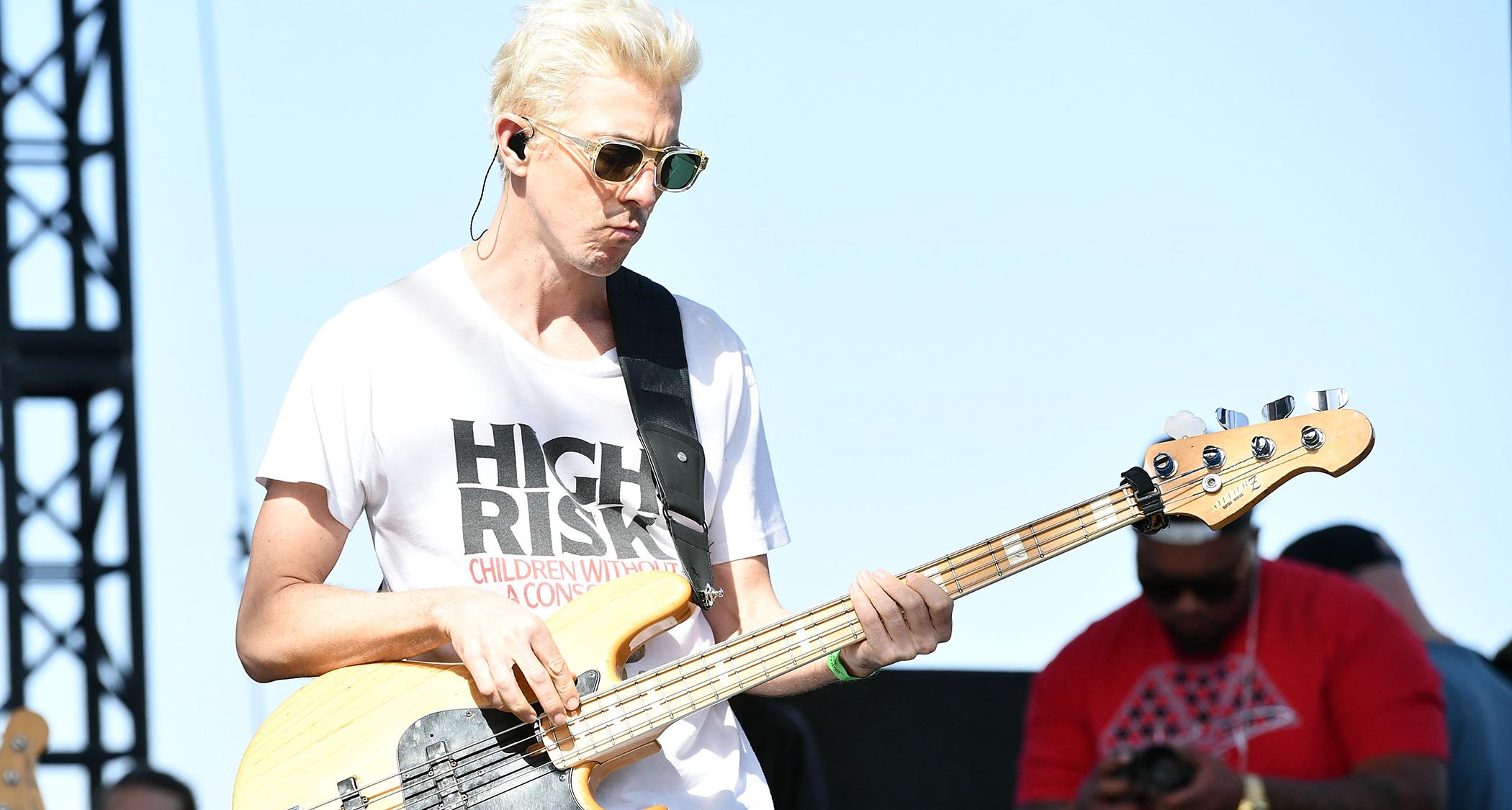“He used seashells as a pick, that's where he gets all that squank from”: Brilliant players of all persuasions have earned their stripes in Lynyrd Skynyrd's three-guitar army. Rickey Medlocke takes us through all of them, and what made them special
Having served in Skynyrd as a pre-fame member and later as a crucial part of their reunion, Medlocke has more insight into the idiosyncrasies and genius of each of the band's six-string aces than just about anyone
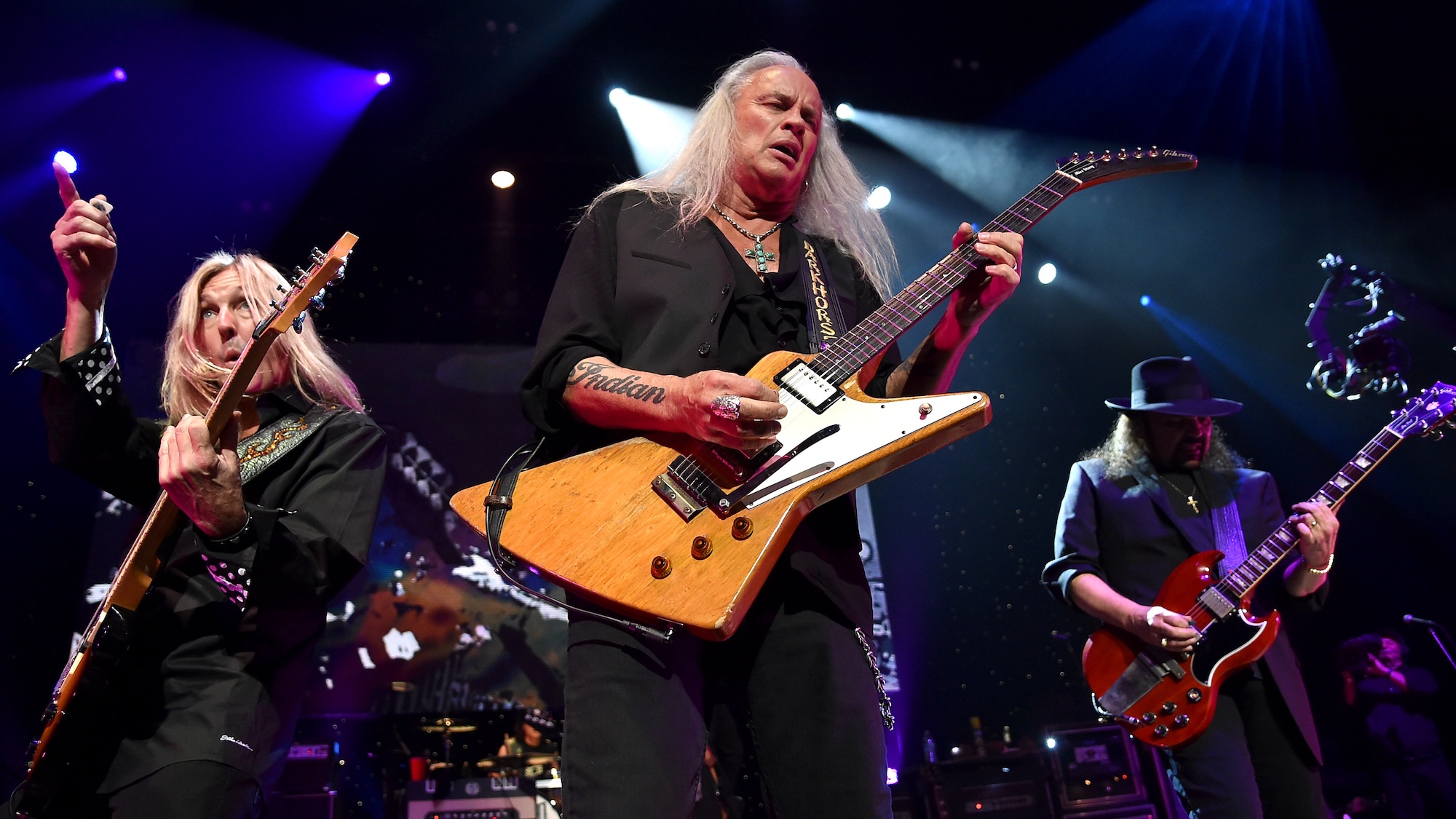
All the latest guitar news, interviews, lessons, reviews, deals and more, direct to your inbox!
You are now subscribed
Your newsletter sign-up was successful
Right from their self-titled 1969 debut album, Southern rock's founding fathers, the Allman Brothers Band, established an impeccably high standard of lead guitar playing as one of the genre’s central tenets, thanks to Duane Allman's Jedi-level slide work, Dickey Betts’ dexterous, melodic style, and the duo’s pioneering twin harmonies.
When their Jacksonvile, Florida contemporaries Lynyrd Skynyrd launched their recording career with Pronounced 'Lĕh-'nérd 'Skin-'nérd’ (1973), the difference in their approaches became immediately apparent.
While the Allmans are best remembered for Allman and Betts' virtuosity, and their traiblazing jam band style, Skynyrd’s legacy was signposted in the timeless quality of their songs, and the razor-tight chemistry with which they were performed.
Their classic tracks are loaded with bluesy solos, which “...are signature parts that everybody in the audience can sing,” current guitarist Rickey Medlocke astutely observes.
In the 70s, Skynyrd fluctuated between two and three guitar line-ups, each player layering their distinctively-voiced licks to form a cohesive solo, sometimes playing lead breaks in blazing unison.
“You perform as a team,” Medlocke explains to GW. “I was there in the Hell House, playing drums. Ronnie Van Zant was Skynyrd’s strongest point, the most incredible writer. And he got us together as a team – he wanted a band that, when they walked out there, was a machine.”
Medlocke has unique insight into Skynyrd’s sound, having served as their drummer between 1971 and 1972, when Van Zant, and founding guitarists Allen Collins and Gary Rossington, were crafting legendary songs like Freebird.
All the latest guitar news, interviews, lessons, reviews, deals and more, direct to your inbox!
After his own successful career as vocalist/guitarist with Blackfoot, Medlocke was invited by Rossington to rejoin Skynyrd in 1996, as part of the reunion initially begun in 1987 in tribute to Ronnie Van Zant, guitarist Steve Gaines, and his sister Cassie (backing vocals), who’d lost their lives in the tragic 1977 plane crash that ended the original band's career.
Tasked by Rossington with faithfully representing the late Allen Collins’ style, Medlocke has also played a key creative role on all Skynyrd’s post-'96 albums.
Since Rossington's passing in 2023, he and frontman Johnny Van Zant are honoring their fallen bandmate’s wishes in driving the band forward. Now, Medlocke joins Guitar World for a run-down of his Skynyrd guitar predecessors and partners.
Allen Collins
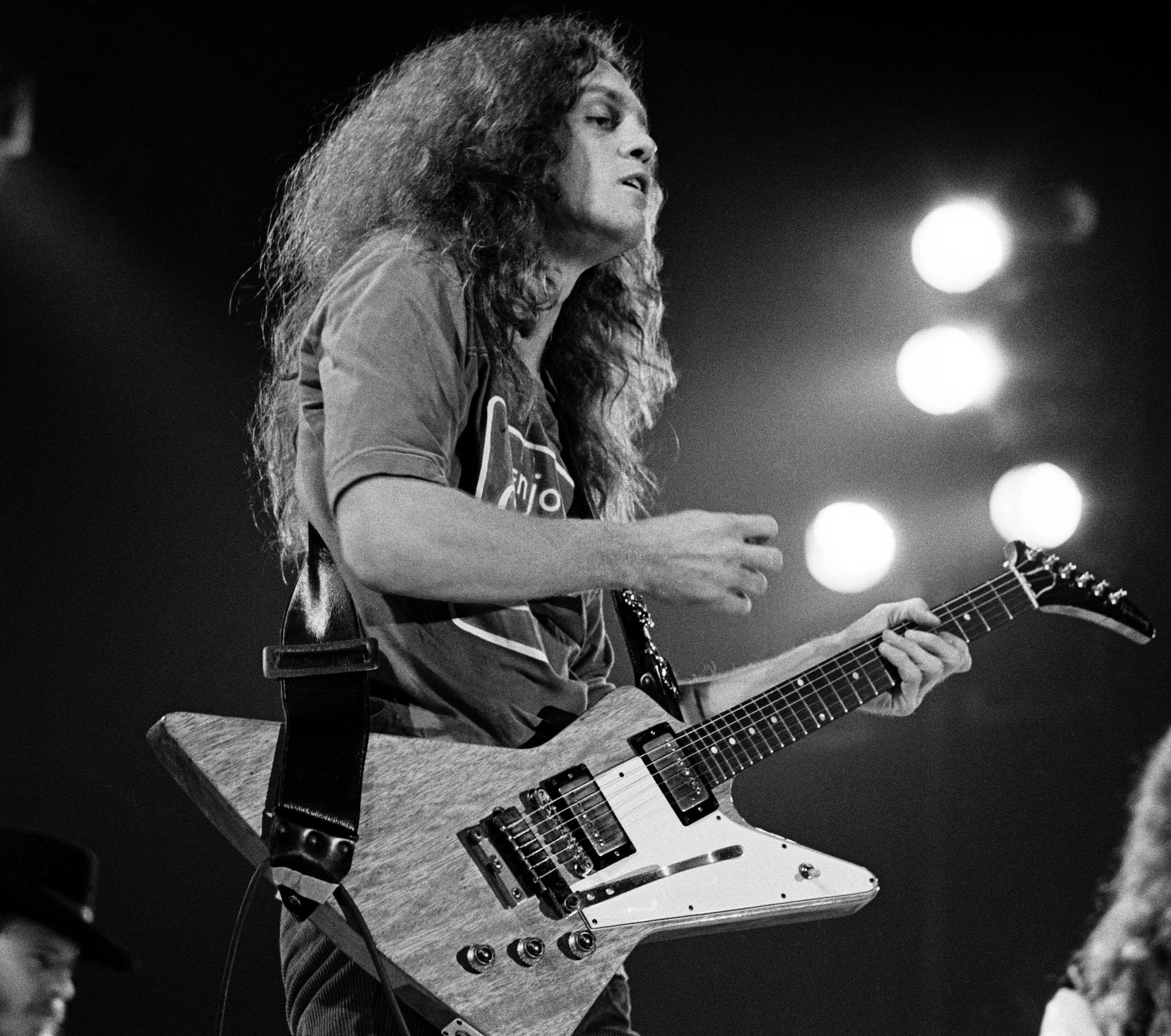
“Allen was a huge Eric Clapton fan,” Medlocke reveals, “and he was into Jimmy Page, Hendrix, and Jeff Beck, like myself. Allen [took] that influence and formulated his own thing.”
Collins' frequently-imitated solo on Freebird is a masterclass in composing memorable minor and major pentatonic phrases, and sequencing them dynamically to reach a searing crescendo, balancing speed and precision.
Collins infused every note with his customary fire and passion, setting a template not just for Skynyrd, but for Southern rock.
Gary Rossington
“Gary idolized Paul Kossoff,” Medlocke recalls. “We all saw Free at the skating rink in Jacksonville. Gary always wanted to play unique signature melodies.”
Like Kossoff, Rossington achieved powerful results with a minimum of notes, as his gut-punch double stops and wailing bends on Saturday Night Special attest.
Also responsible for Freebird’s slide guitar lines, Medlocke notes that, “...in his latter years, Gary loved playing more slide than anything.” Fittingly, the band’s most recent album, Last of a Dyin’ Breed, opens with Rossington breaking out the bottleneck.
Ed King
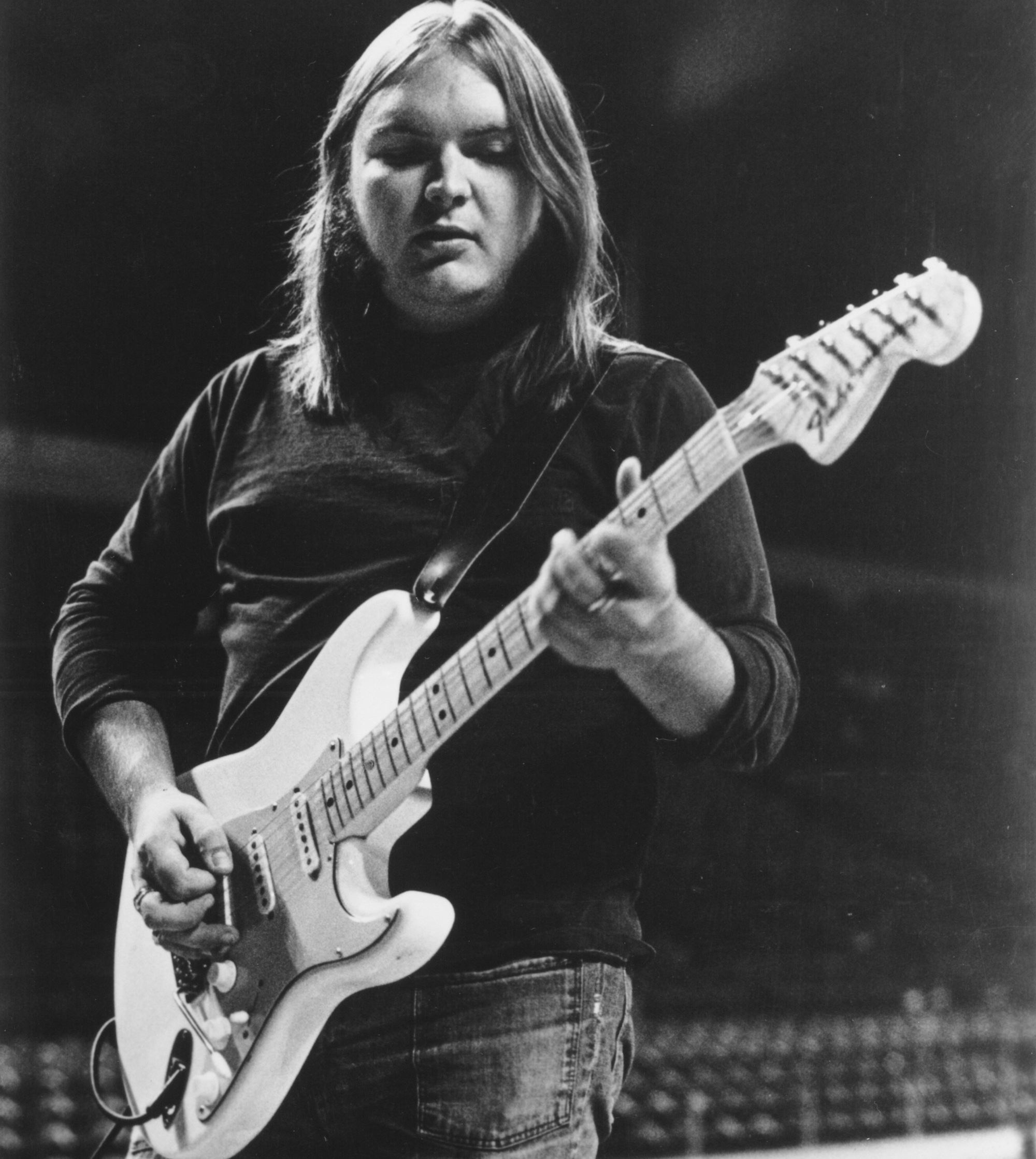
Joining as bassist in 1972 for Pronounced..., King then became third lead guitarist until 1975, returning between 1987 until 1996.
“Incredible guitar player,” Medlocke says. “Sweet Home Alabama – that lead, it's just unique. He used seashells as a pick, that's where he gets all that squank from on that Stratocaster.”
King’s idea of playing G major pentatonic/G major blues licks over Sweet Home’s borderline G major/D mixolydian progression came to him “...in a dream,” he told this writer. “I got up, picked up my guitar, and played it as I saw it in the dream. Sure enough, it was great.”
Steve Gaines
In 1976, Skynyrd chose Cassie Gaines’ unknown kid brother for the third guitar slot over Mountain’s Leslie West and session ace Wayne Perkins. Ronnie Van Zant told writer Cameron Crowe, “The kid’s a writing and playing fool. He’s... scared everybody... into playing their best in years.”
Gaines' lightning-fast chops and “soulfulness,” as Medlocke aptly puts it, light up 1977's Street Survivors with genuinely dazzling moments like I Know A Little’s intro, and his fluid, lyrical lead break at 0:57 and closing exchange of ascending licks and harmonies with Collins on That Smell.
Randall Hall
When paralysis sustained in a 1986 car accident prevented him from playing on the 1987 tribute tour, Allen Collins selected friend and solo band member Hall as his replacement.
“I knew Randall when we were teenagers,” Medlocke says. “He was well known around Jacksonville – a great guitar player. He took a lot of directions off of Allen. He did great.”
Hall's nimble, bluesy style sat well alongside Rossington's measured approach until his departure in 1993.
Mike Estes
Hall’s replacement, present until 1996, was also a friend of Collins, and of Skynyrd stage manager Craig Reed, who invited Estes to collaborate on songs for 1993’s The Last Rebel.
After befriending King and Rossington, Estes joined for Endangered Species (1994), an acoustic album aimed at the country market, co-writing the highlight Devil In The Bottle.
Rickey Medlocke
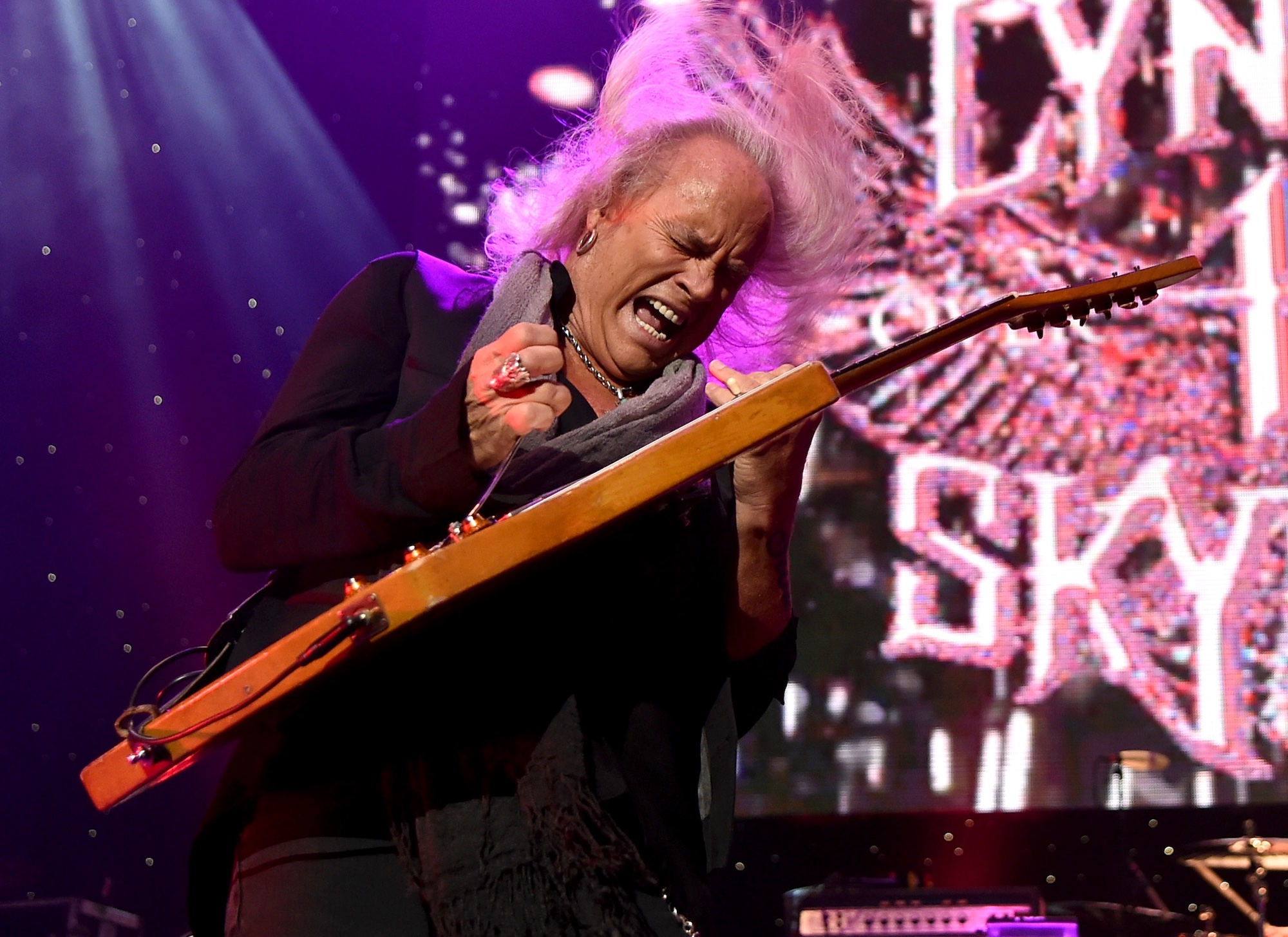
Blackfoot's classic albums from Strikes (1979) through Highway Song Live (1982) marked Medlocke out as a ferocious lead guitarist, able to fire off slide licks so sharp you could shave a yak with ‘em.
Considered an original Skynyrd member by Rossington, Collins, and Ronnie Van Zant, Medlocke wrote, played drums and guitar, and sang, on the pre-fame Skynyrd’s First: The Complete Muscle Shoals Album.
Sharing influences and a love of Gibson Firebirds with Collins, Medlocke re-energized the reunion-era band in 1996, just as Steve Gaines had the original.
“The exact words out of Gary's mouth were, ‘Rickey, you're the closest thing to Allen I could hope for, and I want to make this band rock again,’” he recalls.
Asked for a favorite track from recent albums, Medlocke chooses drop-tuned bruiser Still Unbroken.
“That was an old riff that I had laying around, I loved playing the lead to it. I'm still a very heavy rocker, because that's what Blackfoot were based off of.”
Hughie Thomasson
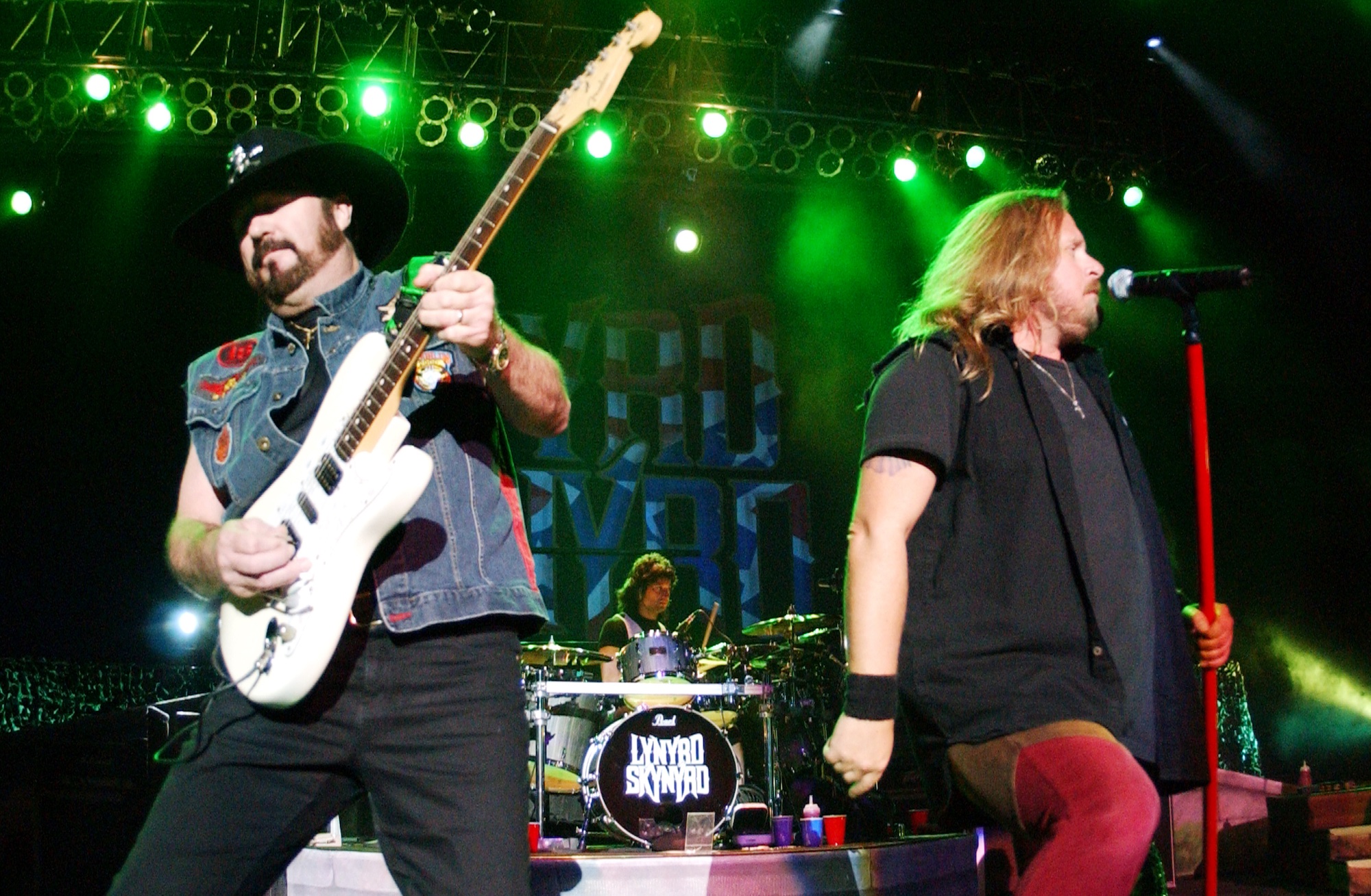
Described to this writer by his Outlaws bandmate, Freddie Salem, as “...one of the best American guitarists ever born; the finesse of Chet Atkins and the fury of Jimi Hendrix,” Thomasson would sharpen his picks to rip out biting, warp-speed licks from a glass-toned Strat on classics like There Goes Another Love Song.
Recruited simultaneously with Medlocke, Thomasson remained for nine years, reforming the Outlaws in 2005.
“I loved playing with him,” Medlocke enthuses. “Hughie used to do the beginning of ...Alabama as an instrumental, and it was brilliant. We wish he'd stayed.”
Mark Matejka
“Johnny [Van Zant] knew of Mark,” Medlocke says of Thomasson’s replacement, “and he fit the bill.
“Mark is a very talented player, very educated. He knows that fretboard, and chord structures, like nobody I've ever seen. When we're onstage playing Tuesday's Gone, he adds these little inversions against what I'm playing. He knows every chord in the book.”
Matejka’s lead work in Skynyrd is equally impressive; check out his fleet-fingered, Albert Lee-style hybrid picking on I Know A Little.
Damon Johnson
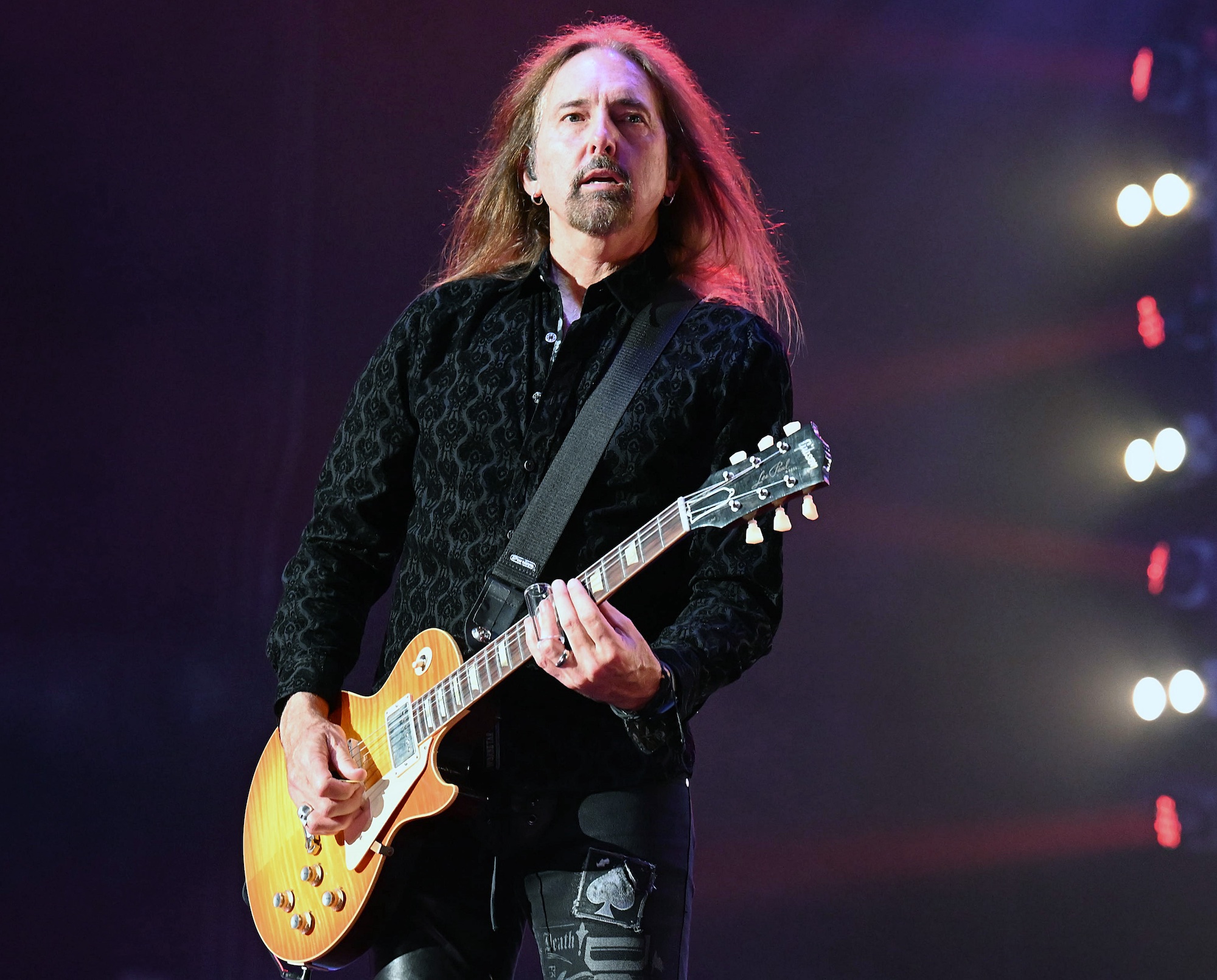
Prior to playing with Alice Cooper, Thin Lizzy, and Black Star Riders, Johnson's band, Brother Cane, supported Skynyrd in 1993.
Brought in as a substitute while Gary Rossington recovered from heart surgery in 2021, Johnson was kept on Rossington’s insistence. The two played together in 2023 at a gig released this year as Celebrating 50 Years: Live at the Ryman.
“Little did we know, it would be Gary's last show,” Medlocke says. “Gary insisted Damon stay there, next to him, with an acoustic guitar. That was a special calling, insisted [on] by Gary.
“I miss Gary, it's still a very sore spot in my heart. We were very fortunate to get Damon. But the stipulation was to play the exact licks, go for the exact tone. He's using Gary's original rig, because Gary requested it. Damon's done an incredible job. The audiences, for the most part, have accepted it.”
In conclusion, Medlocke surmises, “All the guitar players that have been in this band have been unique, and I salute them.”
Looking ahead, he reveals that, “Johnny and I have got a lot of material that we never recorded. When I first joined Skynyrd, he was only 10 years old, I've known him that long. We’ve even got some of Gary on tape, talking.
“If we do another record, I would hope that Damon would bring that essence of Gary into [it]. Johnny and I are gonna make a decision, along with management, and see about doing a new record.”
Rich Davenport is guitarist and vocalist with punk/ska punk/punky reggae merchants Vicious Bishop, and is a former member of Radio Stars, Atomkraft, and Martin Gordon’s Mammals. He swears by Orange amps and pedals, which is entirely appropriate for a ginger. In addition to making loud noises, he’s also written about loud noises for Classic Rock, Record Collector, Vive Le Rock, and Rock Candy. He’s interviewed such six-stringers as Ritchie Blackmore, Joe Bonamassa, Michael Schenker, Ty Tabor (Kings X), Peter Tork (The Monkees), Scott Gorham (Thin Lizzy), Pat McManus, Steve Hunter (Alice Cooper, Lou Reed), Ed King (Lynyrd Skynyrd), Vivian Campbell (Dio, Def Leppard), George Lynch (Dokken), Steve Lukather (Toto) and Lita Ford.
You must confirm your public display name before commenting
Please logout and then login again, you will then be prompted to enter your display name.





